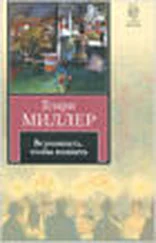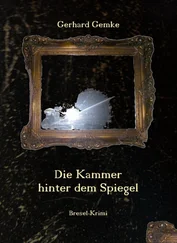*
When I brought it up with Samuel, he dodged the question. He couldn’t say what he had and hadn’t told Vandad, and when I asked him again he got annoyed and said it was impossible for him to remember all the conversations they’d ever had.
“Vandad is my friend. I share stuff with him. The same way you share stuff with your sister. You just have to accept that.”
But I wasn’t going to let him get off that easy. We kept talking, and a few hours later Samuel said:
“Laide. Please. It’s two thirty in the morning. I have to go to sleep. Please realize that the world is not out to get you. Let it go.”
I thought: You don’t know what you’re doing. You are going to regret those words.
*
I had no idea who Nihad or the guy were, but when we approached the door I saw that the glass was broken. The first woman who saw us jumped, she had a knife in her apron, I didn’t know whether it was for cooking or protection.
“Is Laide here?” Samuel asked in English.
“Yes,” said the woman, giving me a suspicious look.
“A friend,” said Samuel.
“Why big car?”
She pointed at the moving truck that was parked down on the street.
“Friendly car,” said Samuel. “No problem, nice car, nice friend.”
We walked to the kitchen, the house was even flashier on the inside. When you stood in the kitchen and looked out at the yard, it felt like you ruled the world. All you could see were the apple trees and the wind and the clouds, and far, far away, down the hill, the white cube that was our fifteen-footer. I thought: How could she have noticed the truck from way up here?
*
We tried to go back to normal. But I sensed that something had changed. One evening in early autumn, I took him along to a birthday dinner at Lisa and Santiago’s. We arrived early, I wanted Samuel to get to know everyone gradually, I got that it could be nerve-racking to walk into a brand new situation like that. But Samuel didn’t seem nervous at all, he was psyched to get to know my friends and when we met up at the Systembolaget at Fridhemsplan he had already selected a three-liter box of ghetto wine. I informed him that it was probably a better idea to buy wine in bottles, since it was Santiago’s birthday. And Samuel wasn’t offended, he just switched out the box for a few bottles and on the way to the register he pointed at one of the labels, which read Vino ecológico , and smiled. We got in line, the cashier looked at us and asked Samuel for ID.
*
Laide was standing in the kitchen, the woman on the stool had a face but it was hard to tell eyes from mouth from cheeks because all of them were black and blue and swollen except for her mouth and lips, which were a mix of purple and red. I tried not to look at her. It was hard, because my gaze kept being sucked back, my brain couldn’t grasp how someone with that face could be sitting up and answering questions from Laide, who was speaking Arabic with her as she spoke Swedish into a telephone.
“Yes, I understand that, I’m not a complete idiot,” said Laide. “But what you don’t seem to understand is that this is an emergency.”
I left the kitchen, I wanted to look around, I walked through an adjoining room and into a dining room and then on into a gigantic room that looked out onto the terrace, which I had seen from the street. It must have been the living room once, because there was a brown piano and a crystal chandelier and the people who lived there now had stacked the furniture that used to be there in the corner, chairs and tables in an old rococo style, like the kind of furniture you see on Antiques Roadshow and that the experts say is worth a hundred thousand even though it looks like it’d go for twenty kronor at a flea market. I wanted to go all the way to the terrace but I couldn’t, because the floor was full of sleeping mats, sleeping bags, plastic bags, IKEA bags. Suitcases lined the walls, none of them had four wheels, several didn’t even have extendable handles, they were just plain, ordinary suitcases, made of hard, thick plastic. The room was full of objects but empty of people, except for two sleeping bodies, I didn’t see their faces, their hair was sticking out from under an army-green blanket.
*
Santiago and Lisa lived in a brightly lit four-room apartment with a view of the water in one direction and the highway in the other. Their daughters were with Santiago’s mom, and as we entered the hall we were hugged by a perfumed Lisa and a red-spattered Santiago, who excused himself by saying that he was in the middle of the lasagna and there had been a “tomato-related incident.” I introduced Samuel and they embraced him even though it was the first time they had met and I stood there in the hall feeling proud of my friends, that they were so welcoming and kind and didn’t show any signs of thinking that he was too young or smelled funny.
The next to arrive were Tamara and Charlie (who seemed annoyed at each other) and Ylva and Rickard (who were apparently back together again although no one understood why). We sat around the oval table and waited for a lasagna that would soon, soon be ready.
“There was a small incident,” Santiago said again. “A tomato-related incident.”
“We have all the time in the world,” said Rickard.
“I can only cook one thing,” said Samuel. “It’s called cottage-noodles.”
I heard myself laugh, a little too loud. Samuel explained how you make the dish. Two-minute noodles. Cottage cheese. Herb salt. Done.
“Hold on a second, I have to write this down,” said Santiago, and everyone laughed.
*
On the way back to the kitchen I heard one of the women crying, and someone comforting her. As I came in I realized that it was Nihad, the beaten woman, comforting the woman with the knife, Zainab. Even though it should have been the other way around.
“How many people are actually living here?” I whispered to Samuel.
“What do you mean? Two or three families.”
I laughed.
“What?” Samuel asked.
“Have you seen the living room?”
We walked over together. Samuel’s hand flew to his head.
“Three very large families,” I joked.
We went up to the second floor, the same thing there, piles of sleeping mats, bags, banana boxes. There was a balcony up there, and two guys were having a smoke on it. They nodded at us and smiled, and one of them opened the door and asked in English if we were “Rojda’s lawyer.”
“No,” we responded.
“Okay,” they said, closing the door.
Samuel went from room to room, his hands clenching and unclenching, he took out his phone as if he wanted to call someone, but who could he call? Who could help him out of the bind he had gotten himself into by trusting Laide?
*
The lasagna had been eaten, the wine glasses had lip prints and were cloudy with grease spots, they had left round red footprints on the table. We had talked about the health risks of plastic toys (Lisa), criticism of Montessori preschools (Santiago), the art fair in Basel (Tamara), the poor financial situation of the municipality of Södertälje (Charlie), the proof that homeopathy really works (Ylva), and how good the dessert was (Rickard). Toward the end of the evening, I started to relax, Samuel could handle this. I went to the bathroom and when I came back I heard him say:
“. . and everyone has their own personal definition of love — don’t they?”
I sat down beside him and patted his arm so he would understand that this wasn’t the time, not here, not now. We could talk about topics like that at recess when we were thirteen, but now we were adults. There was a short silence after Samuel posed the question. Tamara, who had hardly smiled once since arriving, maintained that love had to be linked to humor, that you had to be able to laugh together. Charlie said that for her, love is when you have an unfortunate urge to want to own the person you’re with and control everything they do. Ylva said that love is accepting everyday life, lowering your expectations and forgiving your partner for being human. Rickard didn’t say anything. Lisa said that love involves addiction somehow — daring to let yourself become maximally dependent. Santiago talked about the role of love in the capitalistic world order, how a couple’s solidarity is the key to constantly increasing consumption. Then everyone turned to me.
Читать дальше












